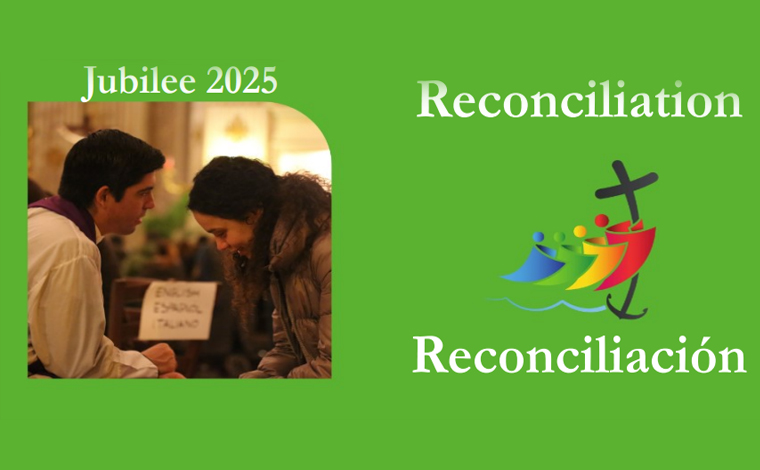Pilgrimage Jubilee 2025
Wednesday, January 8, 2025

A Jubilee year is a sign of reconciliation because it establishes a “favorable time” (cf. 2 Corinthians 6:2) for conversion. We are called to put God at the center of our lives, growing toward Him and acknowledging His primacy.
Even the Biblical call for the restoration of social justice and respect for the earth stems from a theological reality: if God is the creator of the universe, He must be given priority over every reality and partisan interest. It is God who makes this year holy by bestowing on us His own holiness.
As Pope Francis recalled in the 2015 Bull proclaiming the Extraordinary Holy Year, “Mercy is not opposed to justice but rather expresses God’s way of reaching out to the sinner, offering him a new chance to look at himself, convert, and believe. […] God’s justice is his mercy given to everyone as a grace that flows from the death and resurrection of Jesus Christ.
Thus, the Cross of Christ is God’s judgement on all of us and on the whole world, because through it he offers us the certainty of love and new life” (Misericordiae Vultus, 21).
In practical terms, reconciliation involves receiving the sacrament of Reconciliation, taking advantage of this time to rediscover the value of confession, and experiencing God's personal words of forgiveness.
There are some Jubilee churches that stay open continuously to make available the sacrament of Reconciliation. You can prepare yourself to receive the sacrament by following a guide.
El Jubileo es un signo de reconciliación, porque abre un «tiempo favorable» (cfr. 2 Cor 6,2) para la propia conversión. Uno pone a Dios en el centro de la propia existencia, dirigiéndose hacia Él y reconociéndole la primacía.
Incluso el llamamiento al restablecimiento de la justicia social y al respeto por la tierra, en la Biblia, nace de una exigencia teológica: si Dios es el creador del universo, se le debe reconocer una prioridad respecto a toda realidad y respecto a los intereses creados. Es Él quien hace que este año sea santo, dando su propia santidad.
Como recordaba el Papa Francisco en la bula de convocatoria del año santo extraordinario del 2015: “La misericordia no se opone a la justicia, sino que expresa el comportamiento de Dios con el pecador, ofreciéndole una nueva oportunidad de arrepentirse, convertirse y creer […]. Esta justicia de Dios es la misericordia concedida a todos como gracia en virtud de la muerte y resurrección de Jesucristo.
La Cruz de Cristo, por tanto, es el juicio de Dios sobre todos nosotros y sobre el mundo, porque ofrece la certeza del amor y de la vida nueva (Misericordiae Vultus, 21).
Concretamente, se trata de vivir el sacramento de la reconciliación, de aprovechar este tiempo para redescubrir el valor de la confesión y recibir personalmente la palabra del perdón de Dios.
Hay algunas iglesias jubilares que ofrecen continuamente esta posibilidad. Puedes prepararte siguiendo un esquema.
